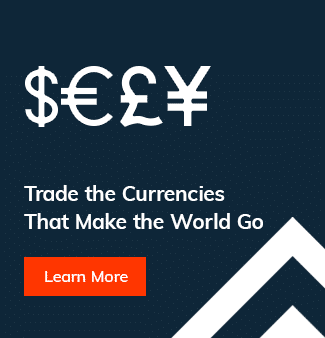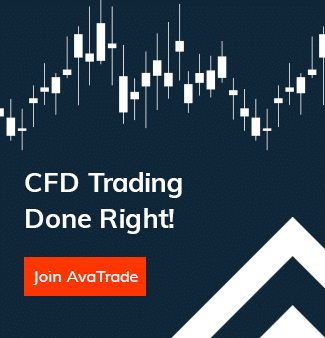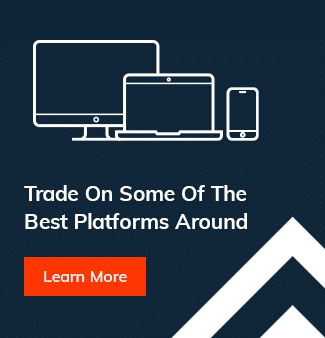
Copper trading via CFDs at Friedberg Direct
Copper trading has been around since the ancient Romans. Being mined in various parts of the world and dating back to 8,700BC, where we know of prehistoric copper pendants, copper is today used more frequently in piping.
Mined in large pits, copper is an extremely useful material, since it can conduct electricity, and is also a trace material in all living things.
Trade Copper with Friedberg Direct
Unlike most of its fellow metals, copper is not as rare as gold, silver or platinum. Copper has been in use for thousands of years, dating back as far as 8,000 BC. Part of its popularity is thanks to the ability to easily melt and be used in various industries in different ways. With Friedberg Direct copper CFD trading is a high-demand commodity, with many advantages:
- Copper and other metals available with competitive spreads
- Employ leverage trading on copper
- Meta trader 4 and MetaTrader 5
- 24/5 Technical Support
Start trading the dynamic copper markets with Friedberg Direct and enjoy the benefits of trading with a regulated Canadian broker!
The Copper Market
The USA used to be the main copper miner; however, today most of the world’s copper is mined in Chile. Other countries producing copper in large amounts are China and Peru. Copper is traded around the world, the main markets being the New York Mercantile Exchange (NYMEX), the Mumbai-based Multi Commodity Exchange (MCX), the Shanghai Futures Exchange (SHFE) and the London Metal Exchange (LME). The copper market is open from 22:00 to 20:59 GMT.
What Affects Copper Prices
Like most commodities, copper prices change based on supply and demand. Copper is commonly used for different appliances, mostly for housing and electrical machinery. A decline in new house constructions can indicate a slower economy, which can result in a drop in copper prices.
Another factor is the supply itself. Should the supply from a region or country slow down or even stop completely, it could greatly affect the copper market and change its price.
Copper is also used for different new green technologies such as environment-friendly batteries and more. Green energies are on the rise as people continue to search for better solutions, and growth in such technologies can bring about an increase in the price of copper.
There is also an emerging market demand for copper, mostly from China as it is the largest consumer of copper. Known as the manufacturing hub of the world, China consumes almost half of the world’s copper but does not have enough reserves. This situation gives rise to increasing the supply and global copper trade.
Copper CFD Trading Advantages
It would be safe to assume that most people wouldn’t have a lot of use for large amounts of copper. This is why copper is traded as a Contract For Difference, or CFD for short.
This means the trader does not buy or sell the actual asset, but rather trades on a contract with his broker, subject to the same prices and market movements as the real product. There are several advantages to trading CFDs:
- Leverage
Buying copper, much like any precious metals trading, could be expensive. CFDs allow traders to employ leverage, meaning using only a small portion of the trader’s capital to open a position for a certain percentage of its value, and not the full amount. - Cost Effective
Not trading the actual instrument can save a lot of money on side expenses such as transporting, maintaining and storing it. - Easy to Drop
In case of a sudden large change of value, owners of the product must find a way to dispose of their resources in order to make a profit or avoid a loss. When trading the instrument’s CFD on the online trading platform, however, all the trader needs to do is simply close his position.
Copper Trading With Friedberg Direct
Friedberg Direct invites you to trade copper, as well as many other commodities. With us you can receive copper market news, data, technical support and copper market analysis. Don’t forget to check out the CFD Rollover dates to know when the current contracts expire.
When choosing a broker for copper trading, Friedberg Direct comes as a natural choice – because of the experience, the regulation, safety of funds and all the other reasons Friedberg Direct is positioned at the forefront of the industry.
Join Friedberg Direct and trade over 100 instruments on a variety of platforms and enjoy the benefits of trading with one of the best forex brokers!
Copper Trading FAQs
- Is copper the best metal to trade?
Gold has been testing nine-year highs, and silver is making strong gains too, but there’s another metal worth keeping an eye on and that’s copper. While copper may not be as glamorous as gold and silver, it can still be a good trading instrument thanks to its heavy industrial usage. In fact, that usage is expected to grow as more renewable energy sources come online, and as electric vehicles become more popular. Combine that with tight supplies and copper could be the metal you want to trade.
- Is copper a precious metal?
Some people claim that copper is a precious metal, but in reality it is a base metal. There are several reasons to classify copper as a base metal. One is that precious metals are rare in nature, but this isn’t the case for copper. Finally, precious metals occur in nature in their metallic state, but copper is almost always found in oxide and sulfite ores that need refining. That aside, copper is still a commodity metal and is just as good a trade vehicle as any precious metal out there.
- What is the best strategy for trading copper?
Copper is an excellent choice for new traders interested in following technical analysis strategies. Of course traders should also be sure to follow the fundamental developments of the copper market to let them know when supply and demand are rising and falling. By combining the big picture given through fundamental analysis, with the details that come out from the study of technical chart patterns, traders will be able to create their own best strategy for trading copper.
These FAQs, comments/analysis do not take into consideration your individual personal circumstances and trading objectives. Therefore, they should not be considered as a personal recommendation or investment advice. They are intended for educational purposes only. Past performance is not indicative of future results. There is no guarantee that the contents or instructions will result in profits or not result in losses.







